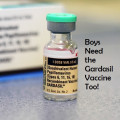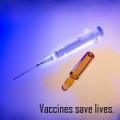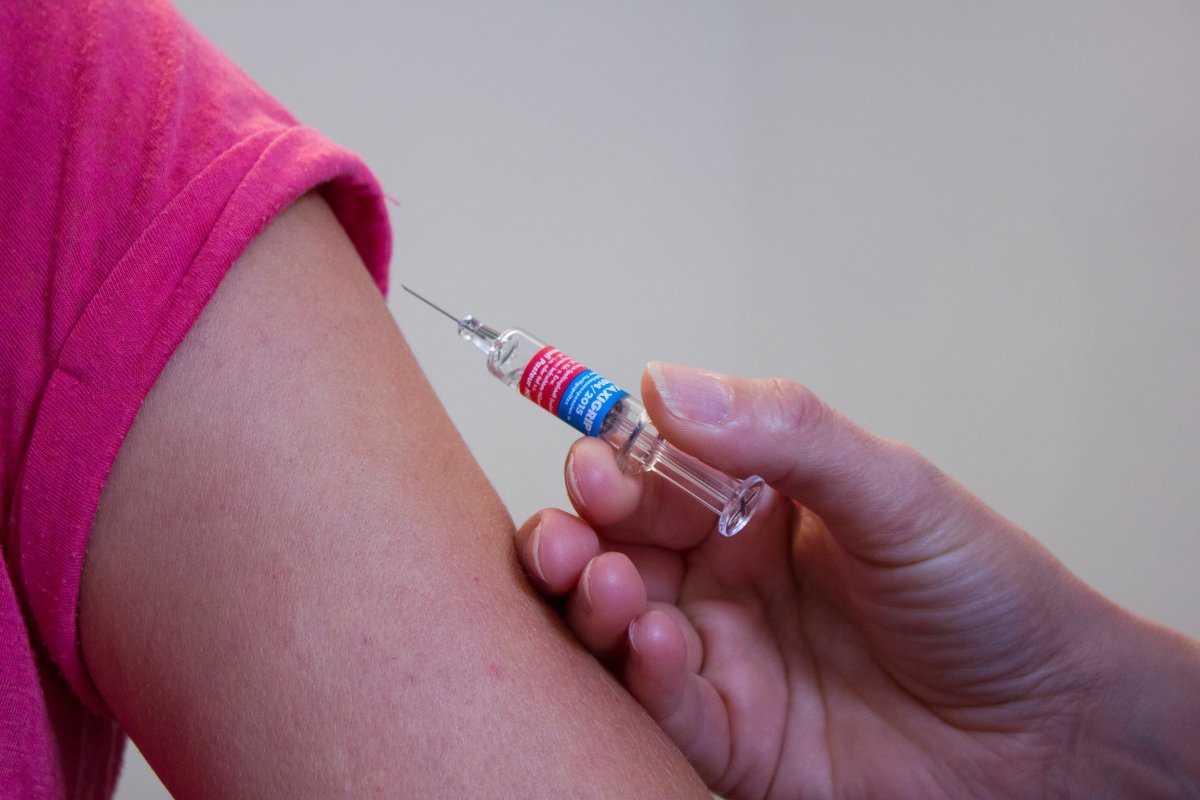Weighing the Pros and Cons: Vaccinating Children
Getting several immunizations during childhood can be traumatizing, but is it possible that vaccinations have detrimental side effects that could harm a child’s health and quality of life? When it comes to the health and safety of a loved one, especially a child, it is controversial whether the vaccinations a child receives have enough benefits to outweigh the risk of some adverse side effects. This is a scary and nerve-racking thought; that is why this controversy needs to be addressed with answers supported by research and facts in order to discover what the best option really is for parents and their children. While there is a large majority of parents in the United States that do choose to have their children vaccinated, others delay or refuse the recommended vaccinations overall due to safety concerns (Glanz 1). This “vaccine hesitancy,” or the apprehension about the decision to vaccinate one’s self or children, can be due to many factors including the risk of side effects, personal beliefs, and even social media influences (Kumar 1). Some sources agree that vaccines are safe and a crucial advancement in medicine while others believe the risk of adverse side effects is too high. There are many different perspectives regarding the topic of vaccinating children, and this is why studies have been conducted, accompanied by other research, in order to find the best answer to make sure children stay healthy and safe. Although it is understandable why parents are so protective and concerned about their children's health, they need to recognize that vaccines are the best way for their children to stay safe because the benefits of vaccines greatly outweigh the risks.
Why is there a controversy about parents having their children vaccinated, and why is there such confusion? The medical field is always advancing and creating new vaccines, and whenever an extremely rare side effect is reported, it is broadcasted and parents see this and automatically assume that vaccines are not safe. For those people who are on the side of the controversy that believe the risks of vaccinating children outweigh the benefits, this paper will describe what vaccine hesitancy is and the causes of it, clear up common misconceptions about vaccines and address possible consequences of not vaccinating one’s children.
Many sources address the topic of vaccine hesitancy such as what it means and the causes of it. According to Opel, vaccine hesitancy among parents is one of the most frustrating situations a pediatrician faces (Opel 526). In fact, most pediatricians even respond to parents who refuse to vaccinate their children by refusing to care for their children altogether, and may even contact child protective services due to the parent’s refusal (Opel 526). In an article that features an interview with, Surgeon General Vivek Murthy, he states that the most important message he can give to parents is to by all means get their children vaccinated (Bernstein 1). While he does acknowledge the fact that the apprehensions parents have stem from only wanting to protect their children, he bluntly states that the science behind the immunizations has been tested and proven safe (Bernstein 1). With all the new advances in medicine, vaccines have the potential to prevent deadly illnesses now more than ever; however, that success is directly dependent on the acceptance of parents (Salmon 391).
There are many causes of vaccine hesitancy such as social norms and values, media, vaccine safety perception and knowledge, income, past experiences, and many others (Kumar 3). With all of these possible contributing factors, it makes it slightly more understandable why people do develop vaccine hesitancy. For example, even some photographs, like one of a baby doll with a large number of syringes stuck in it to depict how many shots a child receives before they are two years old, can sway a parent to become vaccine-hesitant (Vanderhoff). Relating to media, Guidry agrees with Kumar and says that the social media platform, Pinterest, has information about vaccinations, most of which relating to persuasive anti-vaccination views (Guidry 5051). Relating to income and education, Bakalar discusses a survey done in California that concluded people with higher incomes and education are more likely to exempt their children from vaccinations (Bakalar 1). Eve Dubé, one of the authors of an article in the Vaccine journal, concurs that social factors play a role in the decision-making process of vaccinating their children, but also adds that other factors such as emotional, spiritual, cultural, and political have an influence as well (Dubé 4191). In other words, there are internal factors that play a role in a person’s choice as well, not just external influences. Professor Elizabeth Miller, a Consultant Epidemiologist, describes how most concerns about vaccines side effects arise as a result of an association made between the administration of a vaccine and the development of a rare disease that has an unknown cause (Miller 2). For example, a child that already had autism, but maybe the symptoms were not so obvious yet, vaccinations would be a cause that a parent could blame for the disease. On the other end of the spectrum, Miller also states that it is legitimate to have safety concerns because of the fact that immunizations differ from other forms of medicine in that healthy children are receiving shots to prevent diseases that do not pose a threat anymore (Miller 2). Finally, it is crucial that health care providers talk to parents and families about vaccine schedules so there is no confusion or apprehensions; unfortunately, it has been observed that it is not uncommon for some professionals to face problems in discussing the recommended vaccine schedule and other advances in that field (Kumar 3).
Vaccine hesitancy could be a positive or negative mindset to have according to several sources. However, the people who have the strongest opinions about this controversy, not surprisingly, are physicians and health care providers. Doctors and researchers understand the worries that parents have, that is why such rigorous and chronic testing of the vaccines are conducted in order to see if there is any possibility of short-term or long-term side effects (Glanz 6). However, overall it seems like all health providers have come to a consensus that the safest and healthiest decision is for parents to have their children vaccinated. One article describes an ethical case of a six-month-old child whose parents are refusing vaccinations; different physicians respond to this by explaining what they would do in that certain situation. Drs. Saad B. Omer and Walter A. Orenstein make a straightforward statement by saying that vaccines are one of the most effective preventative measures for infant health, and “has a clear benefit in protecting this infant [in the study] from vaccine-preventable diseases, even after accounting for potential adverse events associated with each vaccine” (Opel 528). Dr. Monica Richter from Valley Children’s Clinic in Renton, Washington discusses her approach to vaccine-hesitant parents which includes saying that it is ultimately the parents’ decision, but she is there to educated and make recommendations (Opel 529). She also adds that she asks the parents if they are open to discussing their decision, and if not, she suggests that they visit reputable websites such as Centers for Disease Control and Prevention in order to get more information (Opel 529). In response to the same situation, Dr. Kristen Feemster from Children’s Hospital of Philadelphia in Philadelphia, Pennsylvania claims that a pediatrician must balance three important tasks including the relationship they have with the child’s family, the want to respect the parents’ beliefs and preferences, and the desire to provide the best care possible for the child in order to protect their health (Opel 529). Pediatricians have one main goal and passion and that is to make sure the patients they have receive the care that will keep them the safest; if all of these doctors agree that vaccines are the best choice, that makes a loud statement.
As mentioned earlier, some parents just do not have the information necessary in order to make the best decision about vaccinations for their children. This can lead to misconceptions about vaccines, and there are many of them. One of the most common fears about vaccinations is that they lead to adverse side effects (Tafuri 625). The underlying cause of this fear that parents have is that the risk of side effects that could do permanent damage to a child’s health. A well-known and infamous concern coming from vaccine-hesitant parents is the fear of their child developing autism as a result of being immunized. A study was published that said there was a link between certain vaccinations and autism, but the article was eventually retracted because there were numerous discrepancies about the study (Stein 515). Kumar adds to this by saying that it has been scientifically disproven that developing autism is in any way associated with vaccinations (Kumar 5). Miller also acknowledges that studies have been conducted that show no signs of autism onset after an alleged causative vaccination; however, she notes that there are still parents who refuse to accept that evidence (Miller 2).
Other concerns parents have stem from cases where a noticeable number of an extremely rare and unexpected side effects is reported via massive media coverage. For example, during the swine flu pandemic of 2009-2010, all the people of Sweden were encouraged to get vaccinated with Pandemrix, an influenza vaccine (Lundgren 107). However, a very serious and unanticipated side effect, narcolepsy, effected over 200 children and young adults; this article suggests that it is for reasons like this that people develop fears about vaccinations (Lundgren 107). Some people even go as far as claiming that childhood immunizations can put their children at risk for death. A source from the Expert Review of Vaccines journal states that anti-vaccination movements are due to certain events that have occurred in recent years; for example, in 2014, there were several deaths recorded after a flu vaccination (Tafuri 626). This, of course, caused a panic among people and an increase of vaccine hesitancy; however, the three deaths reported were in adults over 65 years old who had comorbidities, and there was determined to be no association between the vaccine and the deaths (Tafuri 626). Most side effects that have happened have some sort of explanation and are not just something that was missed while testing to see if the vaccines were safe.
A final misconception anti-vaccination parents have is that there are alternate ways to protect their children just as well as vaccinations. Some sources explain a concept known as the herd effect, which is when there is a large percentage of people who are vaccinated against a disease, which then protects people who were not vaccinated from that disease (Van Vlaenderen 2). Because of this phenomenon, parents believe this is enough protection for their children when this is not true. There are various states that allow an opt-out option for vaccines based on several reasons; as a result, areas of low vaccination coverage appear to overlap with local outbreaks of vaccine-preventable diseases (Stein 516). This shows that the herd effect is not a reliable option for protecting children from infectious diseases who are under-vaccinated. Although there will always be extremely small risks when accepting vaccinations, with proper information and education, parents will realize that vaccinating their children is the safest option.
Even if it is the parents’ ultimate decision whether or not to have their children vaccinated, they have to be aware of the possible consequences. Many sources claim that unvaccinated children are then at high risk of contracting deadly diseases and passing it on to others around them. For example, Miller explains a situation of a measles outbreak that happened in San Diego in which the initial case that caused the outbreak was a child who was intentionally not vaccinated and had traveled abroad and consequently contracted the disease (Miller 2). The disease was then spread to other individuals who were unvaccinated as well (Miller 3). Another source adds on to this type of situation by explaining how leaders in Nigeria had urged parents to not have their children immunized, and these refusals resulted in polio cases reported in areas where the disease had originally been declared eradicated (Stein 515). One cohort study conducted in Colorado between 1987 and 1998 determined that personal exemption from vaccinations significantly increased the personal and community risk for infectious diseases; in fact, the risk was the highest in children in daycare and primary schools, who had a 16x higher risk for pertussis and 62x higher risk for measles (Stein516). With that insanely high of a risk, it is not even debatable that the risks of vaccinations could outweigh the benefits. With the knowledge and science of the medical field nowadays, “the potential to reduce suffering, save lives, and curb healthcare spending has never been greater,” in regards to vaccinations (Salmon 396). Most can agree, however, that the potential is directly dependent on parents and their decisions, so it is crucial that instead of being strictly influenced by external factors, such as social media, they take the time to become educated about the consequences their children might have to face as a result of them deciding against vaccinations.
Now that vaccine hesitancy, fueled by common misconceptions about childhood immunizations, and consequences of failing to have children vaccinated have been recognized and researched, physicians, researchers and other health care providers are brainstorming and putting into action different ways to help educate the public in order to reduce the percentage of parents who are considered vaccine-hesitant. Moreover, there is an agreement among experts that there is an increasing trend towards vaccine hesitancy, which needs to be combated immediately (Kumar 6). So, how can this population of parents be reached, and how can new parents be prevented from becoming vaccine-hesitant? One option to help inform and educate parents about vaccination is to hold interventions (Dubé 4193). These interventions can be something as simple as an informative pamphlet, which is actually one of the most tested forms of interventions (Dubé 4193). In the case of the H1N1 pandemic, a mass-vaccination intervention was held in Sweden and was deemed a success because the uptake of the Pandemrix vaccine was 60% (Lundgren 107). One study conducted concluded that text messaging, accessing vaccination-campaign websites, using patient-held internet portals and computerized reminders are viewed as effective in increasing vaccine uptake (Dubé 4193). Another way to address vaccine hesitancy would be to make vaccinations mandatory everywhere; however, this would have to be approached with great care and caution due to the fact that this would be hard on low-income countries (Dubé 4201). Finally, one of the most straightforward ways to prevent and stop vaccine hesitancy is for pediatricians and healthcare providers to openly discuss the subject and communicate their knowledge and experiences with the family they are caring for (Opel 530).
For those people who are on the side of the controversy that believe the risks of vaccinating children outweigh the benefits, hopefully the information presented has been able to make it worth giving this controversy a second thought. After discussing what vaccine hesitancy is and the causes of it, clearing up some common misconceptions about vaccines, and addressing possible consequences of not vaccinating one’s children, it is understandable why it is so crucial to have children vaccinated. Almost all doctors can agree that there are always going to be risks with vaccinations, but “the benefits to the individual and to society outweigh, by far, the adverse effects” (Stein 516). The fact of the matter is that when a disease is prevalent and deadly, parents will want to vaccinate their children, as a result, the disease is controlled and parent will be more likely to refuse immunizations (Opel 530). This dynamic needs to end so outbreaks and deaths of children do not have to be the reason parents finally realize that vaccinations are the only way to keep their children and others around them healthy and safe.







